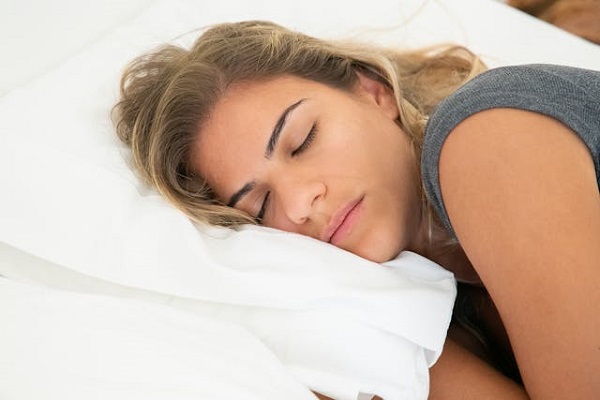Words: Dr Ronald D WHITMONT
Classical homeopathic medicine [CHM], the use of a single, ‘similar’ homeopathic remedy for treatment, has a good track record in improving our overall health and reducing the dependence upon conventional medications. It helps our body balance and resolves underlying conditions. Numerous studies attest to the fact that such homeopathic treatment helps the body recover more quickly from illness, thereby significantly reducing the risk of exposure to potentially harmful medications and their side-effects. This choice of such a holistic treatment makes more sense as a first line option before pharmacologic interventions, for instance, are attempted for sleeplessness [insomnia].
Many homeopathic remedies, or medicines, have demonstrated therapeutic activity that help to correct sleep abnormalities, yet finding the correct remedy for the individual case requires the proper application of homeopathic principles in that selection process. A routine analysis of several current homeopathic repertories [symptoms and their remedy index] reveals over 460 different homeopathic remedies and more than 570 different rubrics [symptoms] referenced for this problem.
It is, however, imperative to note that random and superficial selection of homeopathic remedies, not following CHM prescription guidelines, is more likely to result in failed prescriptions. When each individual case is treated on the basis of CHM’s unique identifying characteristics, there is an excellent chance of success. This is simply because following a detailed, in-depth analysis is more likely to reveal certain determining factors, while assuring that a proper and accurate selection of the ‘similar’ remedy will take place.
Any failure to implement CHM prescribing methods [even if so-called ‘homeopathic’ medicines are used] is more likely to result in treatment failure since adherence to the ‘Law of Similars’ [likes cure likes] is the determining factor of whether a homeopathic remedy is likely to work. In other words, if homeopathy is not applied ‘homeopathically,’ namely on the basis of homeopathic laws and principles, it will be no more likely to succeed than placebo [dummy pill]. Homeopathy, like any other system of medicine, must be utilised according to the dynamics upon which it is based, or it may not produce the desired results.
Homeopathy is a complete system of medicine. It is not an integrative adjunct medical modality that can simply be substituted into treatment plans in place of conventional medication. CHM is not an allopathic medical system, and it cannot be applied ‘allopathically’ with any realistic expectation of success.
Most CHM physicians have extensive experience working with individuals suffering from sleep and other ‘rhythm’ disorders. These professionals have a thorough knowledge of homeopathic literature, derived from world-wide evidence-based experience spanning over two hundred years.
Homeopathic ‘Chronotherapy:’ Remedy Signpost
Remedy Time Symptoms Worsen Side
Alumina 4:00pm-8:00pm
Apis mellifica 4:00pm
Arnica montana 6:00am
Arsenicum album 1:00-2:00am/1:00-2:00pm Right
[Recurs same day/week/month/year]
Belladonna 3:00-4:00pm Right
Bovista 7:00am
Bryonia alba 9:00pm
Calcarea carbonicum 3:00am
Carbo vegetabilis Evening [Recurs same day/week/month/year]
Carcinosin 5:00-7:00pm
Chelidonium majus 4:00am/4:00pm
China officinalis 10:00-11:00am/5:00am
Eupatorium perforatum 7:00-9:00am [especially fever]
Gelsemium sempervirens 10:00am
Hepar sulphuricum 6:00am/6:00pm
Kali bichromicum 2:00am
Kali carbonicum 3:00am [2:00-4:00am]/5:00pm
Lachesis muta Morning aggravation, 12 noon Left/left to right
[Recurs same day/week/month/year]
Lycopodium clavatum 4:00-8:00pm Right
Mercurius solubilis Nightly aggravation
Phosphorus Evening aggravation/twilight Left
Podophyllum 3:00/7:00am; 7:00-9:00am [fever]
Pulsatilla 4:00-5:00pm/evening
Natrum muriaticum 10:00-11:00am
Nux vomica 4:00-5:00am; 6:00am; 11:00am; 6:00pm Left
Sulphur 3:00-5:00am; 11:00am; 8:00pm
Veratrum album 6:00am
Rhus toxicodendron 5:00-7:00pm
Silicea 6:00pm
Sepia officinalis 3:00pm, and evening Left
Stannum metallicum 9:00-11:00am
Sulphur 11:00am/5:00am/8:00pm, every 7 days
[Recurs same day/week/month/year]
Thuja occidentalis 3:00-6:00pm; 3:00am and 3:00pm
Tuberculinum 10:00am-3:00pm [Recurs same day/week/month/year].
— Adapted from Synoptic Key, by Dr Cyrus M Boger, MD
Healing With Homeopathy
Certain homeopathic remedies are particularly well-suited to the treatment of sleep disorders, among other ‘rhythm’ disorders. A few select homeopathic remedies, cited below, should not be construed as anything more than ‘useable’ examples out of a large group of remedies. They may be useful in a pinch, yes, but they should not be substituted through self-prescription, or self-treatment — they should be applied [most imperatively] by way of a thorough, in-depth CHM analysis, under the guidance and supervision of a professional homeopathic physician.
Argenticum nitricum. Individuals needing this remedy frequently suffer from anxious insomnia. They are extremely distraught and kept awake by numerous fears and worries
Arsenicum album. Individuals who benefit from this remedy tend to be anxious, but they also demonstrate a physical restlessness. They frequently don’t sleep, because they can’t get physically comfortable and must continually change places and positions at night
Coffea cruda. Individuals who benefit from this remedy often experience a heightened sense of awareness and mental activity at night. Their minds are active, racing through numerous thoughts, even though their bodies may be exhausted
Nux vomica. Individuals who benefit from this remedy are typically accustomed to relying on a pattern of various ‘habit-forming’ medicines to sleep and other ingredients to wake up in the morning. There is also a habitual history of dietetic indiscretion, heavy coffee and alcohol use.

